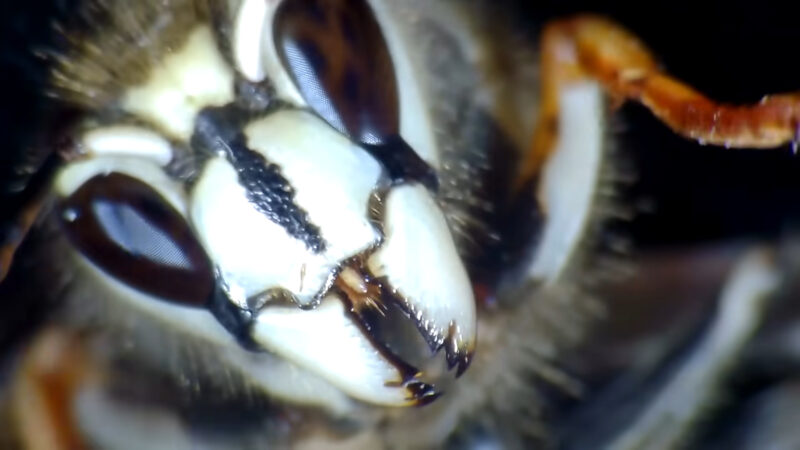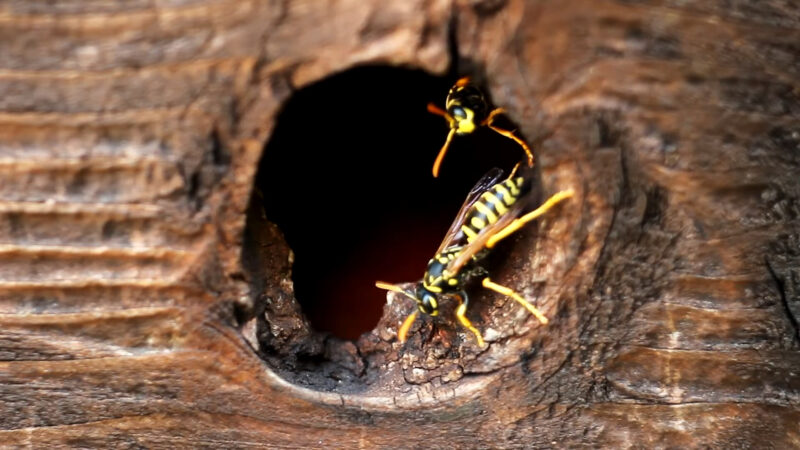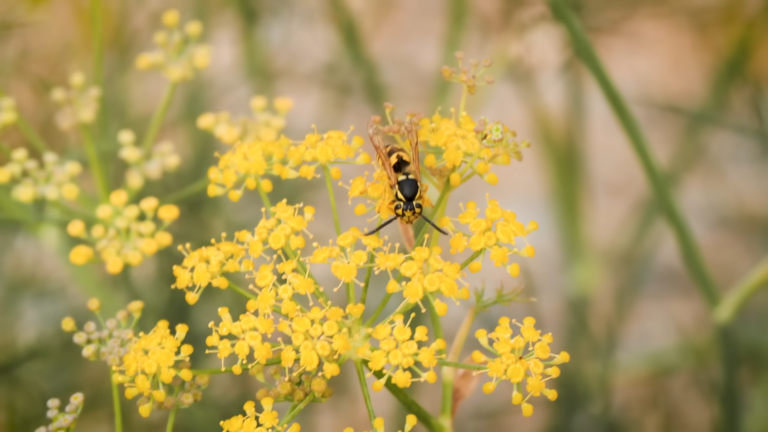Hornets in Iowa can be both a nuisance and a danger, especially during the warmer months. These insects, known for their painful stings, can pose a significant threat to humans and pets. Understanding how to identify and deal with hornets is crucial for maintaining safety.
This article provides detailed information on recognizing different hornet species in Iowa and effective methods to manage them. With accurate identification and proper handling techniques, you can minimize the risks associated with these aggressive insects. Additionally, we’ll cover preventive measures to keep hornets away from your home and yard.
By following these guidelines, you’ll be better equipped to protect yourself and your loved ones from hornet-related dangers.
Recognizing Hornets
Hornets are large, robust insects related to wasps and bees. The most common types of Hornets in Iowa are the bald-faced hornet and the European hornet. Bald-faced hornets have a distinctive black and white coloring, making them easily identifiable.
| Insect | Description |
|---|---|
| Bald-Faced Hornets | Distinguished by black and white coloring, construct large paper-like nests in elevated locations. |
| European Hornets | Brown body with yellow stripes, prefer to nest in secluded areas such as hollow trees or wall cavities. |
Identifying Hornet Nests And Species
Hornet nests vary in size and location depending on the species.
Bald-Faced Hornets

Bald-faced hornets are known for constructing large, football-shaped nests made from a papier-mâché-like material composed of chewed wood fibers mixed with saliva.
These nests can house hundreds of hornets and are often situated high off the ground, such as in tree branches or eaves of buildings.
European Hornets

European hornets typically build their nests in more secluded areas, such as hollow trees, attics, or wall voids.
While less visible than the prominent bald-faced hornet nests, European hornet colonies can still grow quite large and populous.
Hornet Behavior
Understanding hornet behavior is essential for safe handling. Hornets are generally more aggressive than other stinging insects and will defend their nests vigorously. They can sting multiple times, and their stings are more painful due to the presence of acetylcholine.
Bald-faced hornets are particularly aggressive and will chase perceived threats away from their nests. European hornets are less aggressive but will still defend their territory if provoked.
Deadly Hornet Attacks

While hornet stings are generally painful, they can be deadly in some cases. In 2013, Asian hornets in China caused widespread panic after a series of deadly attacks. Dozens of people died, and hundreds were injured. The aggressive nature of these hornets and their ability to deliver multiple stings made the attacks particularly dangerous.
In the United States, fatalities are rare but do occur, usually involving individuals with severe allergies to insect venom. Anaphylactic shock, triggered by multiple stings, can lead to death if not treated promptly. These cases highlight the importance of proper identification and swift action when dealing with hornets.
Bees Defending Against Hornets
Bees have developed unique strategies to defend themselves from hornet attacks. One of the most fascinating methods is “heat balling.” When a hornet invades a beehive, worker bees surround it and vibrate their flight muscles to generate heat. This raises the temperature to a level that is lethal to the hornet but tolerable for the bees.
Additionally, bees use their numbers to overwhelm hornets, attacking them en masse and using their stingers effectively. These defensive tactics showcase the resilience and adaptability of bees in the face of hornet threats.
Dealing with Hornet Infestations

Dealing with a hornet infestation requires caution and proper techniques. If you find a nest, it’s best to contact a professional pest control service, especially for large or hard-to-reach nests. For smaller nests, you can use a wasp and hornet spray, following the instructions carefully.
It’s crucial to approach the nest during the evening when hornets are less active. Wear protective clothing to minimize the risk of stings. After treating the nest, monitor the area for any remaining hornet activity.
Preventing Hornet Problems
Prevention is the key to avoiding hornet problems. Keep your yard clean and free of food scraps, as these attract hornets. Seal any cracks or openings in your home’s exterior to prevent hornets from nesting inside.
Regularly inspect your property for early signs of nests and take action immediately if you find any. Using natural deterrents like peppermint oil can also help keep hornets at bay.
Hornet Safety Tips

Safety is paramount when dealing with hornets. Never attempt to remove a large nest on your own. Always use proper protective gear and take precautions to avoid stings.
If you are allergic to insect stings, have an epinephrine auto-injector (EpiPen) available and seek medical attention immediately if stung. Educate family members about hornet safety and ensure that children and pets stay away from known nest sites.
Conclusion
Hornets in Iowa can be dangerous, but with the right knowledge and precautions, you can manage and prevent infestations effectively. Identifying hornets and their nests accurately is the first step. Understanding their behavior helps in dealing with them safely. When facing an infestation, consider professional help, especially for large nests.
Don’t let this scare you though, Iowa has many advantages (and festivals and events) that can make up for a not-so-little bug being annoying, just stay safe!
Prevention through cleanliness and regular inspections is crucial. By following these guidelines, you can protect yourself and your family from the risks associated with hornets. Stay vigilant and proactive to keep your home and yard hornet-free.













